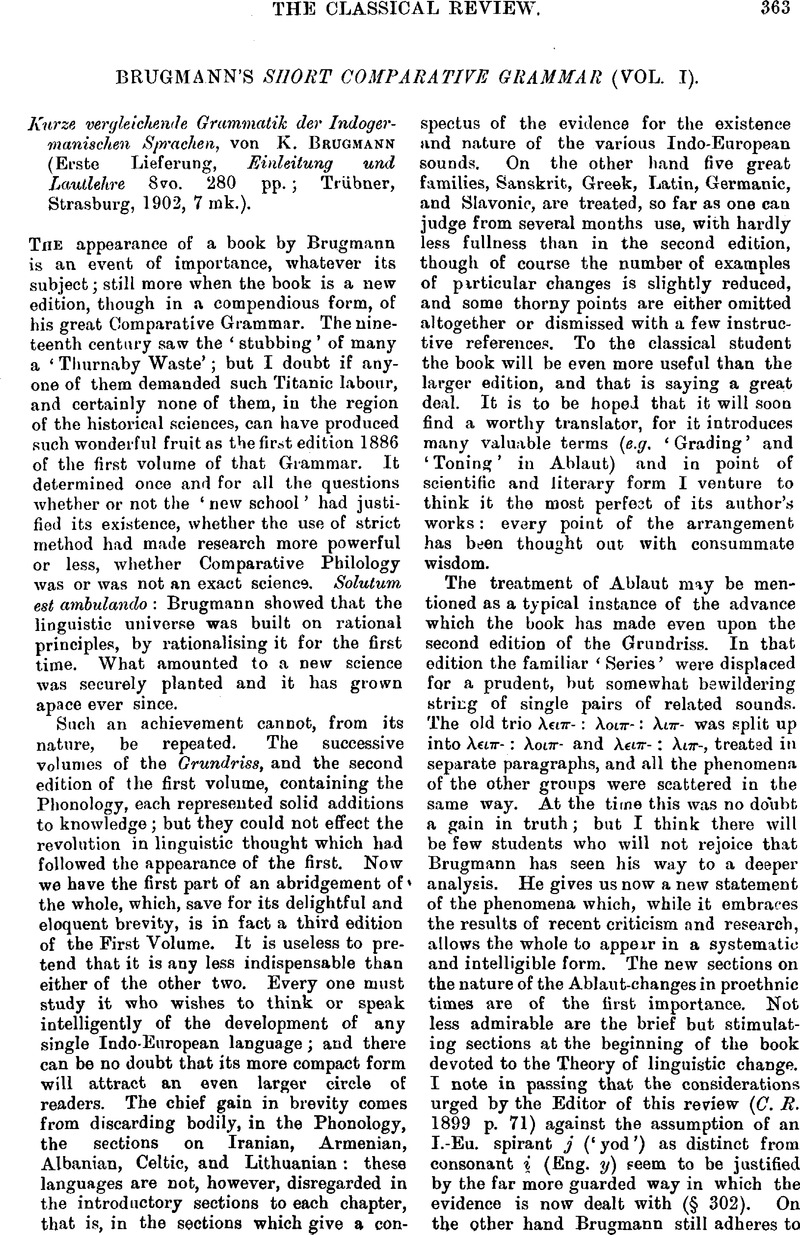No CrossRef data available.
Published online by Cambridge University Press: 27 October 2009

page 364 note 1 See Cl. Rev. 12, 462, It. Dial. pp. 463, 467.
page 364 note 2 In one or two places which I have noticed in the Latin sections Bragmann seems to have given his sanction to some recent theorising which hardly deserved it—notably to some guesses of Sommer's. What, for instance, is gained by explaining (p. 84) the oe of focdus, poena, Poenus as due to the preceding labial, when Bellum Punicum gives us the actual form of the sound as it was spoken? Poenus like mocnia, is the old name, surviving only in poetry and written language generally ; foedus, (subst.) and. poena are legal terms, foedus (adj.) a religious term (of omens, etc., uisu foedum), all equally kept by the written form. Or again, why did the -r- of the suffix preserve -s- from change in the root syllable of miser (p. 201) but not in queror; and why was an adjacent r powerless to prevent the change in forms like horrere, pareve ruris, roris, terercnt, terroris? I am inclined to believe that both Lat. miser and Gr. μνσαρς are borrowed from some South Italic word meaning ‘accursed.’